COVID-19 surges worsen vaccine shortages in poorest countries
As experts and leaders have warned, pandemic won't end if virus spreads in places starved of vaccine
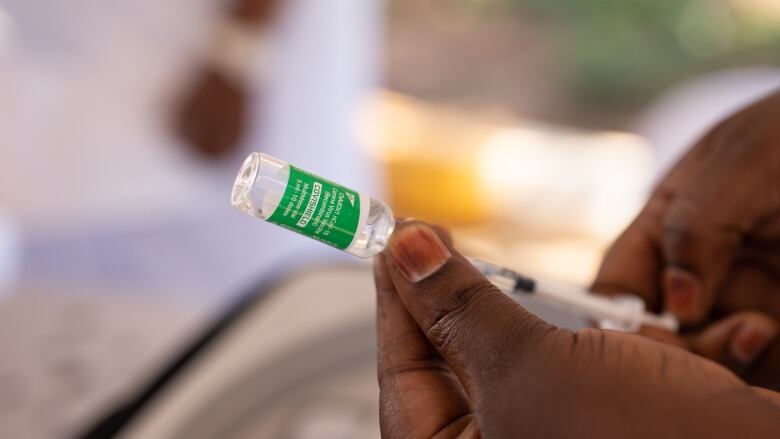
A sense of dread is growing in some of thepoorest countries in the world as COVID-19cases surge and more contagious variants take hold amid a crippling vaccine shortage.
The crisis has alarmed public health officials, along with the millions of unvaccinated, especially those who toil in the informal, off-the-books economy, live hand-to-mouth and pay cash in health emergencies.
With intensive care units filling up in cities overwhelmed by the pandemic, severe disease can be a death sentence.
Africa is especially vulnerable. Its 1.3 billion people account for 18per centof the world's population, but the continent has received only twoper centof all vaccine doses administered globally.
Some African countries have yet to dispense a single shot.
'We are only as strong as the weakest link'
Health experts and world leaders have repeatedly warned that even if rich nations immunize all their people, the pandemic will not be defeated if the virus is allowed to spread in countries starved of vaccine.
"We've said all through this pandemic that we are not safe unless we are all safe," said John Nkengasong, a Cameroonian virologist who heads the Africa Centers for Disease Control and Prevention.
"We are only as strong as the weakest link."
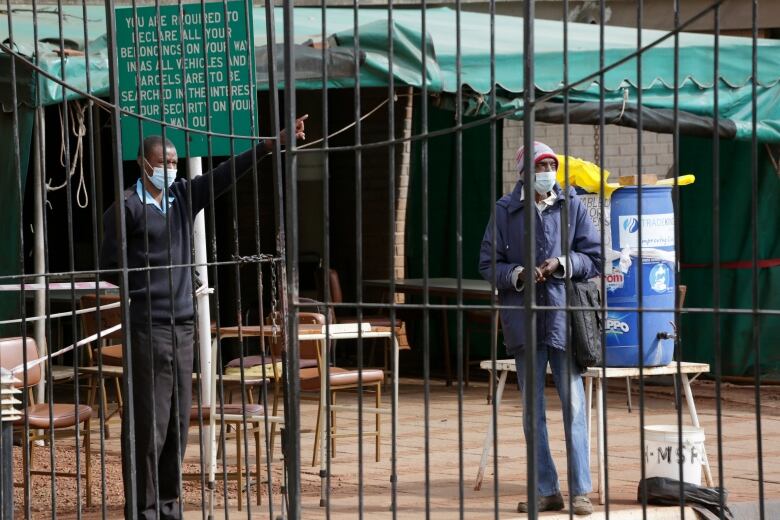
Zimbabwe, which has imposed new lockdown measures because of a sharp rise in deaths and cases in the country of more than 15 million people, has used just over a million of 1.7 million doses, blaming shortages in urban areas on logistical challenges.
Long lines form at centres such as Parirenyatwa Hospital, unlike months ago, when authorities were begging people to get vaccinated. Many are alarmed as winter sets in and the variant first identified in South Africa spreads in Harare.
A 'sobering trajectory'
At the start of the pandemic, many deeply impoverished countries with weak health-care systems appeared to have avoided the worst. That is changing.
"The sobering trajectory of surging cases should rouse everyone to urgent action," said Dr. Matshidiso Moeti, Africa director of the World Health Organization.
"Public health measures must be scaled up fast to find, test, isolate and care for patients, and to quickly trace and isolate their contacts."
New cases on the continent rose by nearly 30 per cent in the past week, she said.
In Zambia, where a vaccination campaign has stalled, authorities reported that the country is running out of bottled oxygen. Sick people whose symptoms are not severe are being turned away by hospitals in the capital of Lusaka.
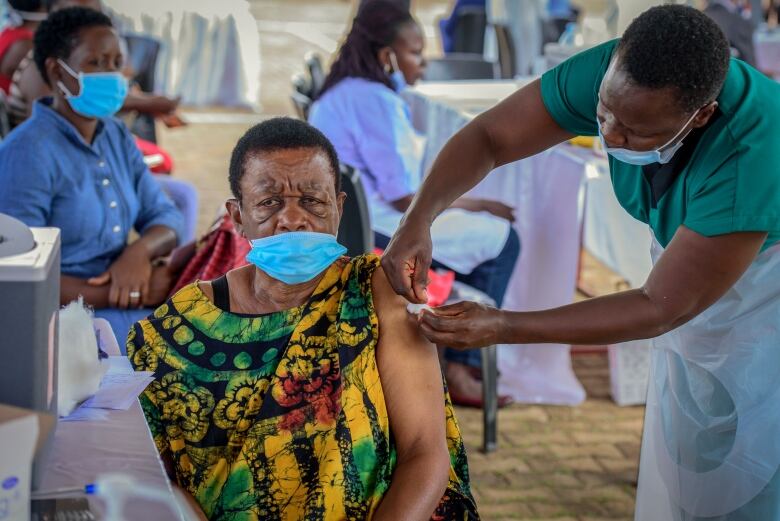
Uganda is likewise fighting a sharp rise in cases and is seeing an array of variants. Authorities report that the surge is infecting more people in their 20s and 30s.
Intensive care units in and around the capital, Kampala, are almost full.Misaki Wayengera, a doctor who heads a committee advising Uganda's government, said some patients are "praying for someone to pass on" so that they can get an ICU bed.
Many Ugandans feel hopeless when they see the astronomical medical bills of patients emerging from intensive care. Some have turned to concoctions of boiled herbs for protection. On social media, suggestions include lemongrass and small flowering plants. That has raised fears of poisoning.
Ugandan President Yoweri Museveni imposed new restrictions this month that included closing all schools. But he avoided the extreme lockdown measures of last year, saying he didn't want to hurt people's livelihoods in a country with a vast informal sector.
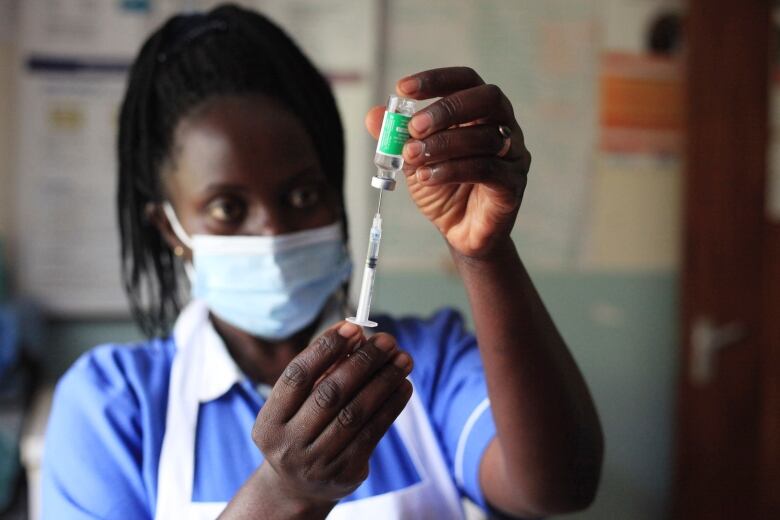
For beauticians, restaurant workers and vendors in crowded open-air markets struggling to put food on the table, the threat from COVID-19 may be high, but taking even a day off when sick is a hardship. Testing costs $22 to $65, prohibitive for the working class.
"Unless I am feeling very sick, I wouldn't waste all my money to go and test for COVID," said Aisha Mbabazi, a 28-year-old waiter in a restaurant just outside Kampala.
Dr. Ian Clarke, who founded a hospital in Uganda, said that while vaccine demand is growing among the previously hesitant, "the downside is that we do not know when, or from where, we will get the next batch" of shots.
5 million cases in Africa to date
Africa has recorded more than 5 million confirmed COVID-19 cases, including 135,000 deaths. That is a small fraction of the world's caseload, but many fear the crisis could get much worse.
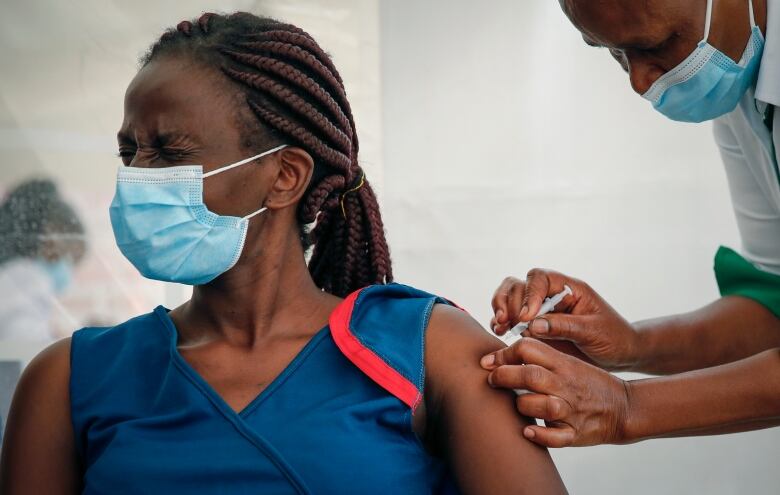
Nearly 90 per cent of African countries are set to miss the global target of vaccinating 10 per centof their people by September, according to the World Health Organization.
One major problem is that COVAX, the UN-backed project to supply vaccine to poor corners of the world, is itself facing a serious shortage of vaccine.
Amid a global outcry over the gap between the haves and the have-nots, the U.S., Britain and the other Group of Seven wealthy nations agreed last week to share at least onebillion doses with struggling countries over the next year.
In the meantime, many of the world's poor wait and worry.
Fewer than 2% of Afghans have received 1st dose
In Afghanistan, where a surge threatens to overwhelm a war-battered health system, 700,000 doses donated by China arrived over the weekend, and within hours, "people were fighting with each other to get to the front of the line," said Health Ministry spokespersonDr. Ghulam Dastigir Nazari.

The vaccine rush is notable in a country where many question the reality of the virus and rarely wear masks or social distance.
At the end of May, approximately 600,000 Afghans had received at least one dose, or less than twoper centof the population of 36 million. The number of those fully vaccinated is minute.
In Haiti, hospitals are turning away patients as the country awaits its first shipment of vaccines.
A major delivery via COVAX was delayed amid government concern over side effects and a lack of infrastructure to keep the doses properly refrigerated.













_(720p).jpg)


 OFFICIAL HD MUSIC VIDEO.jpg)
.jpg)



























































































